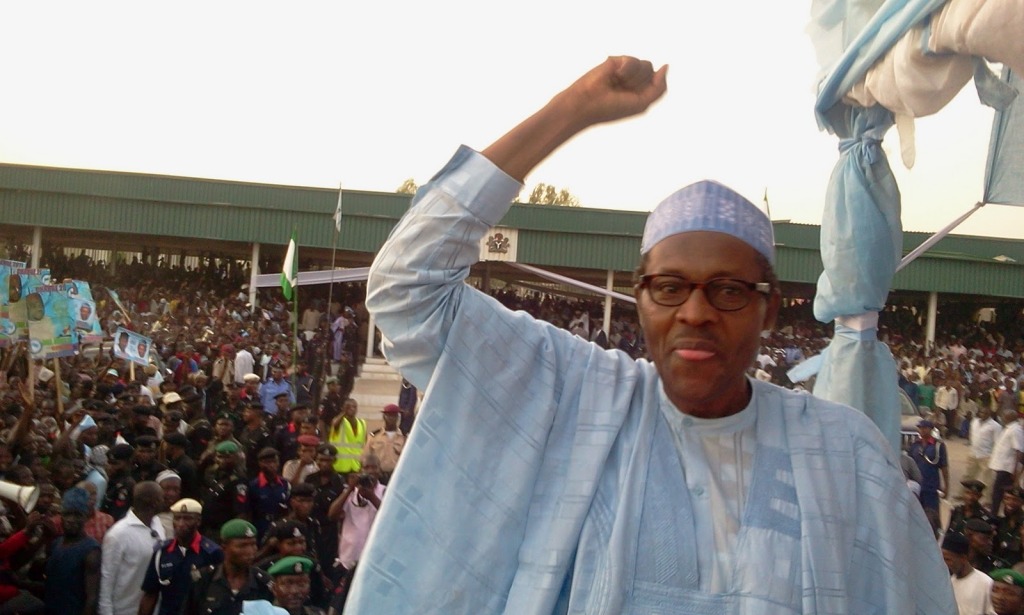WE CANNOT afford to disappoint Nigerians, President Muhammadu Buhari told his party leaders at the weekend.
Mr Buhari was responding to concerns from a nation impatient for signs that their new president has the will and capability to tackle corruption, fight insecurity and instill discipline into the polity.
Just a few weeks into the job, Mr Buhari is battling to get on top of an array of problems plaguing the country, despite bold promises made before the April election that he would move swiftly to build a better Nigeria. He has spent his early days in office fighting fires in his party and in the country.
Last week, it emerged that Mr Buhari may not announce his new cabinet before September — three months into his tenure and nearly six since his election as president.
The information was greeted with dismay. The choice of the team is expected to show the new administration’s economic direction and give investors some comfort at a time of economic difficulty for Nigeria brought on by a long period of low oil prices.
Various reasons have been given for the delay in announcing the cabinet. One is that Mr Buhari is keen to tackle the rot in the system to provide a more solid foundation for governance before putting ministers in place. Another is that he is likely to cut the size of government from 28 to 19 ministries and needs time to assess how to do it.
A third relates to ructions in the ruling APC after the party’s preferred candidates for election to powerful posts in the senate and national assembly were pushed aside by ambitious members of their own party who secured the posts mostly as a result of backroom deals done with the former ruling Peoples Democratic Party.
This has raised concern that a cabal within the APC could be forming an alternative power base within the government that may derail Mr Buhari’s change agenda.
Mr Buhari has not been idle.
He has dismantled the board of the state oil agency, NNPC, one of the most corrupt national oil companies in Africa.
He is also looking at investigating missing government revenue, including $20bn of oil money alleged to have been misappropriated, a claim made by former central bank governor Sanusi Lamido Sanusi. who was sacked by the previous government after making the claim.
But there is concern the country, and particularly the economy, is starting to run on autopilot without a cabinet in place. A strong finance minister is needed to take critical decisions on fiscal policy.
The central bank has stepped into the breach, introducing measures to stem the outflows of foreign currency in a country that spends about $6bn a quarter on imports.
Last week the bank’s governor controversially announced that importers of 41 products could no longer source currency from the central bank, other banks or even bureaux de change and would have to find alternative sources. Products on the list include rice, cement, margarine, meat, furniture, vegetables and even private jets.
Islamist militant group Boko Haram is also ramping up its activities despite Mr Buhari’s election promise to decisively tackle the problem. Last week alone, nearly 200 people were killed in attacks and suicide bombings.
Nigerians are starting to ask about the change they were promised. Although Mr Buhari is not taking longer than his predecessors to get the show on the road, Nigeria’s woes, coupled with Mr Buhari’s ambitious election promises, mean greater pressure for delivery.
The president appears to be trying to tackle many fronts simultaneously. His staff point out that Mr Buhari is not a magician.
But he needs to deliver some quick wins before he loses the goodwill he earned to get this job.

